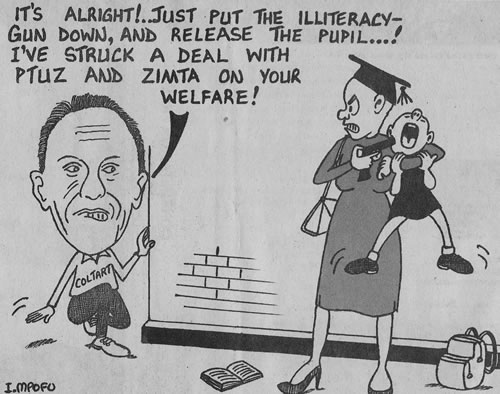Like Leonard Matsa, I have my misgivings about this deal and its new government. One of the challenges will be how to measure the success or failure of a government where so much decision making may be based on mistrust and rivalry.
For example, last week Prime Minister Morgan Tsvangirai started asking for donor support to rebuild Zimbabwe. He estimates it may take USD 5 billion. On Monday, donors pledged USD 100 million / month for 6 months – largely to pay civil servants and to rebuild Zimbabwe’s sewage system. On Tuesday, this story the same donor called this story as a fabrication.
So USD 600 million may or may not be pouring into Zimbabwe any time soon. But either way, this possibility alone raised several questions for me and my colleague when we were talking about accountability yesterday, such as:
- What about the other USD 4.4 billion? Where will that come from?
- If it doesn’t come, how do we judge the performance of ministries?
- If a ministry is in part responsible for its own fundraising, will those whose Ministers are members of Zanu PF be penalised by some donors? If so, who is to blame if that Ministry performs poorly?
- Into what accounts would that USD 600 million go? How would these accounts be monitored, and that spending tracked?
- Will the new Finance Minister submit a new 2009 Budget to Parliament?
- If a Minister fundraises for her own Ministry, is this money added to that Ministry’s budget allocation, or will the money budgeted to that Ministry instead be diverted to ministries that didn’t fund raise for themselves?
In Zimbabwe, we’ve become very used to a polarised analysis of “regime” and “opposition,” in which the two separate entities can be analysed and judged. Now that the two are working together, the task of monitoring government, and measuring its successes and failures in delivering on its promises to us is no less important – and even more challenging.










